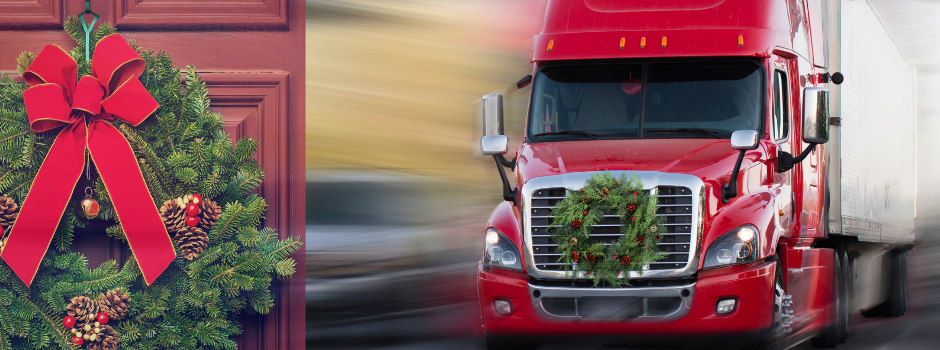Traffic is no doubt the biggest concern for travelers during the upcoming holidays.
Imagine if you were a truck driver.
They have to be even more cautious of our actions than we do of theirs. Holiday travel can mean busy highways, parking lots and heavy interstate traffic. Congested roadways and anxious drivers are a cocktail for turmoil. Sometimes we get so excited we tend to not pay full attention to our surroundings.
Did you know, when we change lanes in front of a big truck upon a red light, we are actually taking away the extra space the driver allowed for their truck to efficiently stop. My four door sedan stops pretty quick, the freight truck behind me can not. Truck drivers try to prepare for all scenarios but sometimes its hard to account for all actions of other drivers. Here a few road way techniques truckers try to follow when driving and changing lanes.
ROADWAY REMINDERS
 Larger vehicles are unable to stop and may slide or fishtail if the brakes are needed in a hurry.
Larger vehicles are unable to stop and may slide or fishtail if the brakes are needed in a hurry.
 Leave at least a car length between you and the car in front of you to avoid a preventable rear-end.
Leave at least a car length between you and the car in front of you to avoid a preventable rear-end.
 Be cautious of pedestrians at cross walks and in parking lots.
Be cautious of pedestrians at cross walks and in parking lots.
 Wet roads become slippery, keep a safe distance and reasonable speed.
Wet roads become slippery, keep a safe distance and reasonable speed.





 It is that time of year when everyone is having friends and family over for bbq’s! During these fun times make sure you take a few safe steps to prevent someone getting burned, hurt, or catching the house on fire!
It is that time of year when everyone is having friends and family over for bbq’s! During these fun times make sure you take a few safe steps to prevent someone getting burned, hurt, or catching the house on fire! Always use caution to avoid injuring yourself or your family and friends, fire safety is key. Fire accidents could lead to a liability claim under your homeowner’s insurance policy, and extending to your umbrella policy for any further injuries or damage.
Always use caution to avoid injuring yourself or your family and friends, fire safety is key. Fire accidents could lead to a liability claim under your homeowner’s insurance policy, and extending to your umbrella policy for any further injuries or damage.
